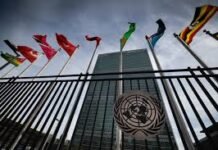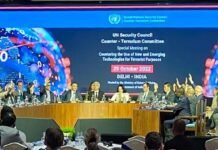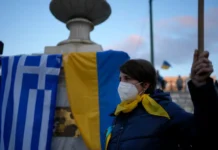
Overview of Resolution 2755 (2024)
On October 12, 2024, the United Nations Security Council adopted Resolution 2755, which aims to extend the mandate of the United Nations Support Mission in Libya (UNSMIL) for an additional three months, setting a new deadline of January 31, 2025. This decision underscores the need for continued international support for Libya as the nation grapples with multifaceted crises stemming from years of conflict and political fragmentation. One of the significant aspects of this resolution is the provision for an automatic nine-month extension of the UNSMIL mandate, provided that a new special representative is appointed within the first three months.
The resolution highlights the Security Council’s commitment to facilitating a Libyan-led political process crucial for organizing future elections. The Council calls upon all Libyan stakeholders to engage in constructive dialogue to address the lingering issues that have stalled political progress in the country. By emphasizing the importance of local participant engagement, the resolution reflects a strategic shift towards empowering Libyan actors in the path towards stability and governance reform, which are essential for the long-term restoration of peace.
Moreover, Resolution 2755 reiterates the urgent necessity for a cohesive national framework that can address Libya’s security and political challenges. The Council’s resolution articulates the collective expectation for unity among various parties involved, which is essential for creating an environment conducive to free, fair, and inclusive elections. It calls for cooperative efforts in mediating existing disputes and reconciling differing interests to pave the way for a more stable governance structure.
Overall, the adoption of Resolution 2755 not only signals continued international engagement in Libya but also reinforces the need for a collaborative approach to governance that places Libyans at the forefront of the resolution process. This focus will be vital in addressing the complexities surrounding the country’s ongoing crises and fostering a sustainable peace.
Challenges to the Political Process in Libya
The political landscape in Libya has been fraught with challenges that have significantly hindered the pathway to establishing a stable and democratic governance structure. One of the most pressing issues is the deeply-rooted fragmentation within the political factions. Long-standing rivalries among political entities have obstructed progress towards free and fair elections. The ongoing disagreements over the election framework, voter eligibility, and the operational logistics of conducting the elections have resulted in a state of limbo that threatens democratic aspirations.
Compounding these challenges is the prolonged vacancy in the position of the Special Representative of the Secretary-General for Libya, which has left a leadership vacuum in the United Nations’ efforts to facilitate dialogue among Libyan factions. The absence of a capable and authoritative figure to spearhead diplomatic initiatives has exacerbated the challenges in negotiating a political settlement and has contributed to the persistent instability. This lack of leadership can impede the facilitation of essential discussions, further complicating the political reconciliation process.
Moreover, the Security Council’s calls for restraint among all parties to refrain from military actions have frequently been disregarded, resulting in a volatile environment that threatens any attempts at progress. The ongoing military confrontations and skirmishes not only undermine the political process but also escalate tensions that could have serious ramifications for the humanitarian situation in the country. External interference in Libya’s internal affairs has also complicated the situation, as foreign actors pursue their geopolitical interests at the expense of Libyan sovereignty. Adherence to the arms embargo by all stakeholders is critical to reduce violence and foster a conducive environment for political dialogue.
In conclusion, the convergence of these challenges illustrates the multifaceted obstacles facing Libya as it seeks to navigate its political transition. Addressing these issues is paramount for paving the way towards a stable, inclusive, and democratic political process.
Member States’ Reactions and Positions
The adoption of UN Security Council Resolution 2755 (2024) to renew the mandate for the United Nations Support Mission in Libya (UNSMIL) has elicited a variety of responses from member states, reflecting a spectrum of perspectives regarding the duration of the mandate and the appointment of a new special representative. Delegates from various countries articulated their positions during the discussion, highlighting both support and opposition to the resolution.
The United States expressed a supportive stance towards the resolution, emphasizing the necessity to extend the mandate while also advocating for a decisive appointment of a new special representative. U.S. officials underscored the critical need for a unified international approach to stabilize Libya, arguing that a longer mandate would provide a foundation for effectively addressing the ongoing challenges faced in the country, including security and humanitarian crises.
Conversely, the Russian Federation raised concerns over the duration of the mandate, suggesting that an indefinite extension might hinder the country’s sovereignty and internal political processes. Russian representatives articulated their position on prioritizing Libyan agency in negotiating the future of their governance, hinting at the need for a balanced approach that respects Libya’s autonomy while still recognizing the UN’s role in peacekeeping.
Other member states shared a range of sentiments regarding the specific duration of the mandate, with some calling for shorter renewal periods that would necessitate regular evaluations of the mission’s effectiveness on the ground. These nations expressed concerns that a longer mandate could lead to complacency and a lack of accountability in the mission’s objectives.
As member states navigate their differing positions, the ongoing discourse surrounding Resolution 2755 (2024) will likely inform the nature and effectiveness of future international actions in Libya. The varying perspectives underscore the complexities of international diplomacy, where geopolitical interests often intersect with the imperative of restoring stability in conflict-affected regions.
Outlook for Libya: The Path Forward
The recent adoption of UN Security Council Resolution 2755 (2024) marks a significant milestone in the ongoing trajectory of Libya’s political development. The resolution has renewed the mandate for the United Nations Support Mission in Libya (UNSMIL), underscoring the necessity of international engagement in the country. The resolution’s provisions are crucial for fostering an environment conducive to political negotiations, which are paramount for achieving long-term stability in Libya.
One of the pressing challenges highlighted by many council members is achieving inclusivity in the political process. It is essential that all segments of Libyan society, including marginalized groups and women, are represented in negotiations. An inclusive approach not only promotes legitimacy but also fosters trust among the Libyan populace, which is necessary for any governmental framework. As the resolution anticipates the appointment of a new special representative, there is an urgent call for this individual to prioritize inclusive dialogue as a means of reconciling different political factions.
Moreover, humanitarian access remains a serious concern in Libya. Continued clashes and instability have created severe challenges for aid delivery, leaving many civilians vulnerable. Ensuring humanitarian access is not only a moral imperative but also a critical component of stabilizing the country. The resolution emphasizes the need for facilitated access for humanitarian organizations, which is essential for providing relief to affected populations.
UNSMIL’s role is evolving as it seeks to navigate the complexities of the Libyan landscape. The mission must strengthen its capabilities to support political dialogue and mediation processes effectively. Through collaboration with local authorities and civil society, UNSMIL can play a crucial role in fostering peacebuilding efforts and facilitating sustained dialogue. The collective hopes of council members reflect a shared aspiration for resolution to the ongoing conflicts and a transition toward a more stable and democratic Libya.




